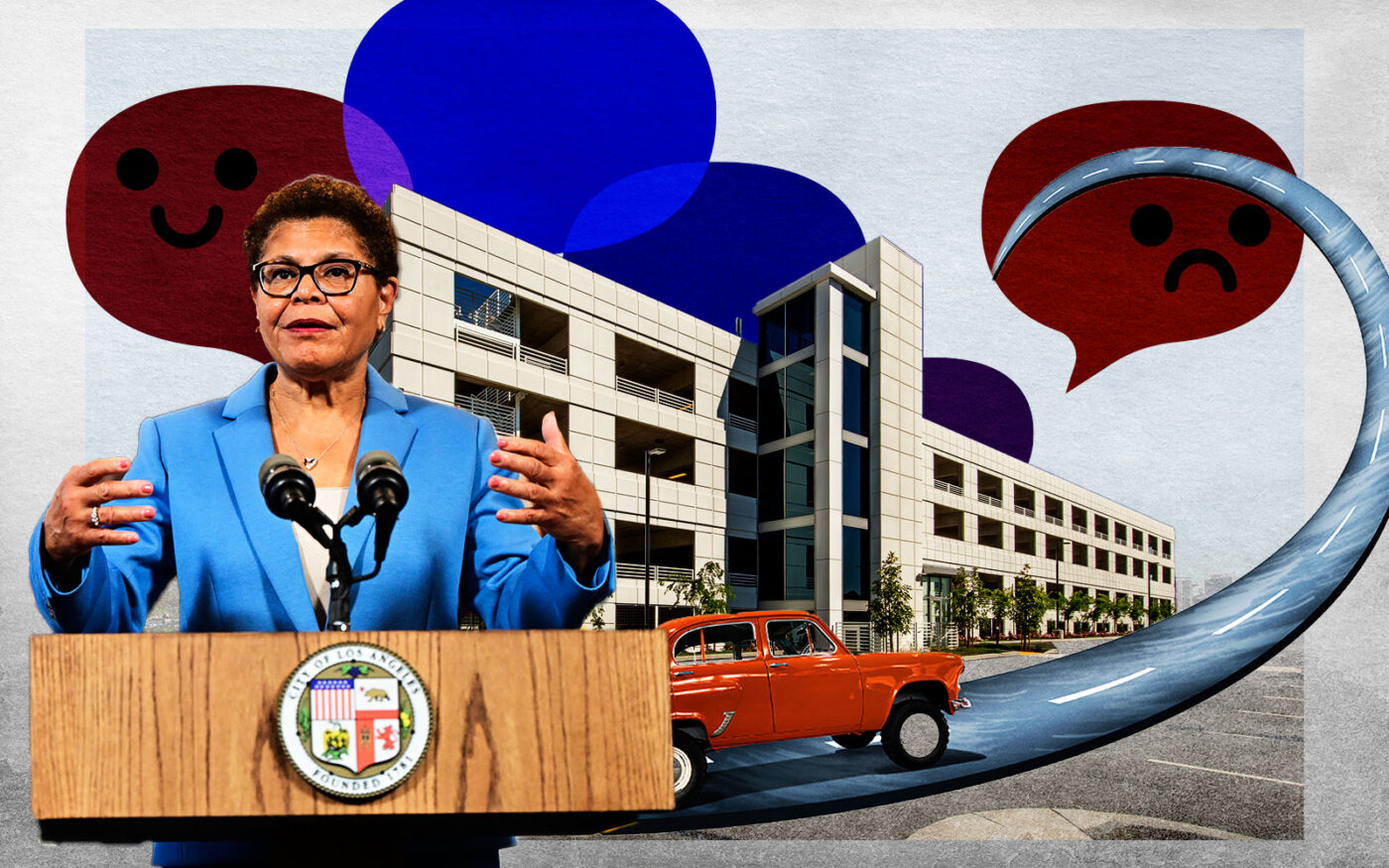Trending
Parking emerges as contention point for ED1 projects
Developers can build ED1 projects without parking, but can they lease them?

While Executive Directive 1, Los Angeles Mayor Karen Bass’ attempt to expedite affordable housing approvals, has generated interest from developers, there has been at least one major point of contention: parking.
Or, rather, the lack of it when it comes to proposed ED1 projects: the vast majority of the ED1 plans don’t offer on-site parking. Land use research firm ATC Research found that 73 percent of ED1 projects, totaling about 9,100 proposed units, have no on-site parking.
Mayor Karen Bass introduced ED1 in December 2022 to exempting affordable housing developments from lengthy environmental reviews and cutting the approval process to under 60 days.
With these projects, developers don’t have to build parking, bringing costs down.
“Developers are finding that in order, given the restrictions on rent, and construction costs today are really high, that the only way they can make a pencil is not to have parking,” said Chris Tourtellotte, who runs development for LaTerra Development.
But the question is: will developers be able to lease an apartment complex in Los Angeles without parking?
“What happens when you have no parking? It’s harder to rent the units,” said Moses Kagan, who runs Adaptive Realty and currently manages about 130 buildings in L.A., some of which have no parking. “As soon as your tenants start to earn more money, they move out, so you get more turnover. Over time, it’s harder to push your rents up, because you’re sort of constantly dealing with people turning over.”
L.A. is synonymous with parking — just watch any movie about L.A. and you’ll notice a lot of driving.
For some, not building parking is the only way for the projects to pencil. And the issue of parking is emerging as a key factor in whether developers take advantage of ED1.
For developers that are jumping on the ED1 bandwagon right now while the program is still in its early stages, getting rid of parking is no brainer given high construction costs.
“The reason why a lot of these projects have no parking is because of the nature of private developers that are doing these projects, because they’re taking the biggest risk,” says According to Ben Lee, an agent at Marcus & Millichap, who has sold a number of sites entitled under ED1.
Lee notes that these smaller developers, who he calls “cowboy” investors, that are using ED1 are taking on more risk because costs are high and the program is new, — no projects have been built, yet. More risk-averse builders and institutional investors are still evaluating how these ED1 projects pan out.
At the end of the day, it’s about finding the cheapest land, and the cheapest way to build.
“The reason why these developers are doing it in South LA without parkings because the dirt is the cheapest there,” he said.
“Developers are finding that in order, given the restrictions on rent, and construction costs today are really high, that the only way they can make a pencil is not to have parking,” says Chris Tourtellotte, who runs development for LaTerra Development.
For most, parking is just a part of the overall calculations and assumptions the builders are making.
Some developers are using the ED1 program as a way to expedite projects that previously looked to score incentives under the city’s Transit Oriented Communities, or TOC, program.
The city introduced Transit Oriented Communities (TOC) Affordable Housing Incentive Program in 2017 as a way to incentivize affordable housing, with the incentives correlated with proximity to public transport. The program offers density bonuses, height increases and fewer parking requirements for residential projects that have a certain number of affordable units.
“A developer who has bought a piece of land and has a sunk costs into the TOC entitlement strategy that doesn’t pencil anymore is using ED1,” Lee said.
Developers are not necessarily flocking to ED1 because it removes parking requirements, but is an alternative route to getting a project approved.
Some developers don’t see parking as an issue long-term.
“There’s such a lack of affordable housing in the city of L.A., that people would still be glad to find an affordable unit with rent restrictions, and then either get rid of their car and take the bus or Uber or taxi or ride their bicycle, or park their car on the street,” Tourtellotte said.
“With fully autonomous self-driving vehicles and robo taxis, less and less people will own cars, because cars won’t really be in park.”




